“There is such power in creating space for people to be heard and seen.”
It’s wonderful when a teacher trainer has the chance to see how a workshop theme or technique is realized with real students. Tiffany Probasco-Francis had many such opportunities during her virtual English Language Specialist project in Brazil, but one stood out. Inspired by an activity from the training, one K-12 teacher created a mural that celebrated LGBTQIA+ family structures. The teacher knew that queer community members faced opposition in their daily lives and this was her way of embracing and promoting social justice and inclusivity – the focus of Probasco-Francis’s project. “It was a huge WOW moment to see the impact working with teachers had on students thousands of miles away,” Probasco-Francis reflected.
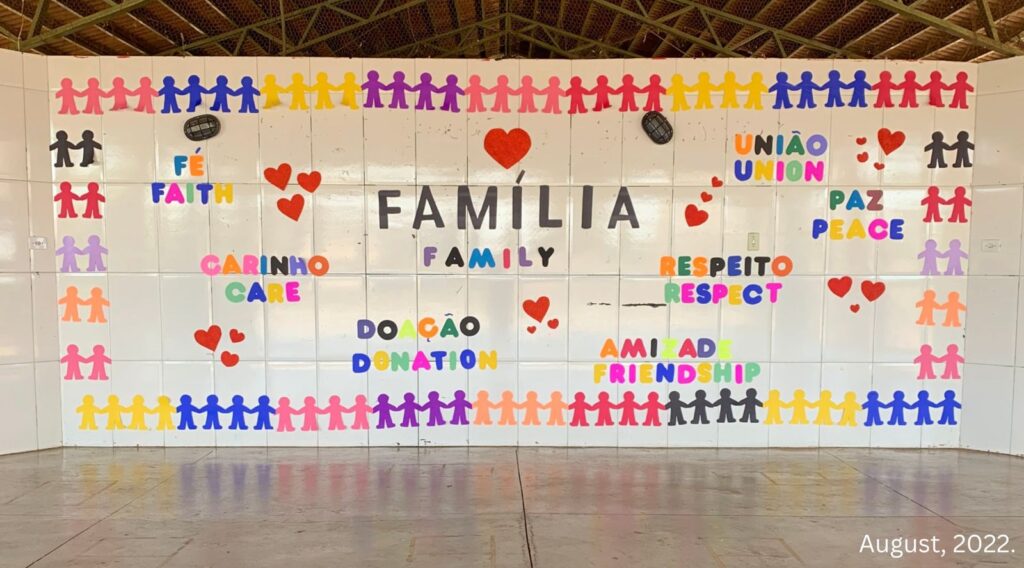
The four-month project was created for current English Access Scholarship Program students, Access alumni who are now teachers, and current K-12 teachers, to advance the teaching of English to the Black, Brown, and Indigenous populations of Brazil. It was hosted by E2C – Brazil’s unique Access project, an initiative funded by the United States Embassy and Consulates and the Regional Office for English Language Teaching in Brasília.
Workshops were based on Coursera’s University of Michigan’s Community Organizing for Social Justice, a six-module course based on the experience of change-makers in Detroit, Michigan. The RELO office and community partner Mais Unidos selected the course and Probasco-Francis was tasked with adapting it for a Brazilian context, focusing especially on reflective exercises. “The course was a good cornerstone for learning together about the vocabulary of social justice,” she added. “With that basis, we were able to move forward with reflecting and navigating our own contexts.”
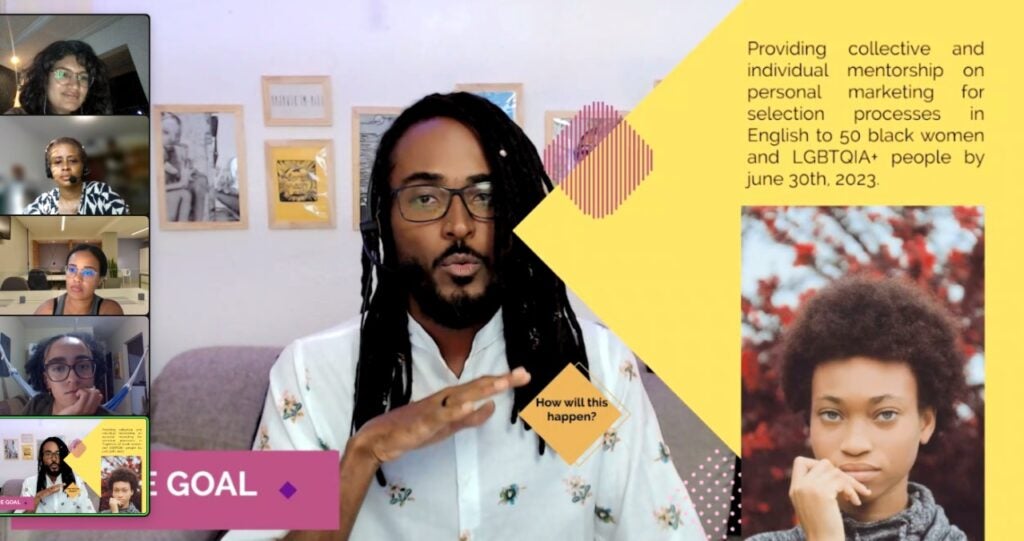
The course provided the context to introduce a variety of methods for integrating diversity, equity, inclusion, and accessibility (DEIA) practices into classroom teaching. “DEIA really begins with the exploration and excavation of your own value systems and beliefs, and even biases,” said Probasco-Francis, recognizing the unique characteristics of vulnerability and openness necessary in this work.
Routine and Reflections
Needing to balance her project with a full-time job, Probasco-Francis dedicated her evenings and weekends to preparing for and facilitating workshops. She delved into notes and materials from over two decades of work as a multilingual instructor – including work as a facilitator, curriculum developer, and director for racial and social justice dialogues – tailoring best practices from her past experiences to meet the specific needs of her Brazilian audience. “There was a lot of time spent researching materials, creating the materials on social platforms like Padlet, and of course facilitating the workshops,” she noted.
Making a solid connection with her audience was a key component to the success of the project. True to her feelings about successful DEIA work, she began with a deep dive on her own identity. “I think that personally coming from a descendant of slavery and many of the participants having the same shared history, it was very easy to draw connections and parallels,” she said. “I situated myself as a co-creator in this fight for social justice and equality.”
Whether participants were focused on race or some other aspect of identity, discussion about human rights was held in a way that the humanity of all people was the main focus – what she called a “universal and shared desire to make this world more understanding of human experiences.”
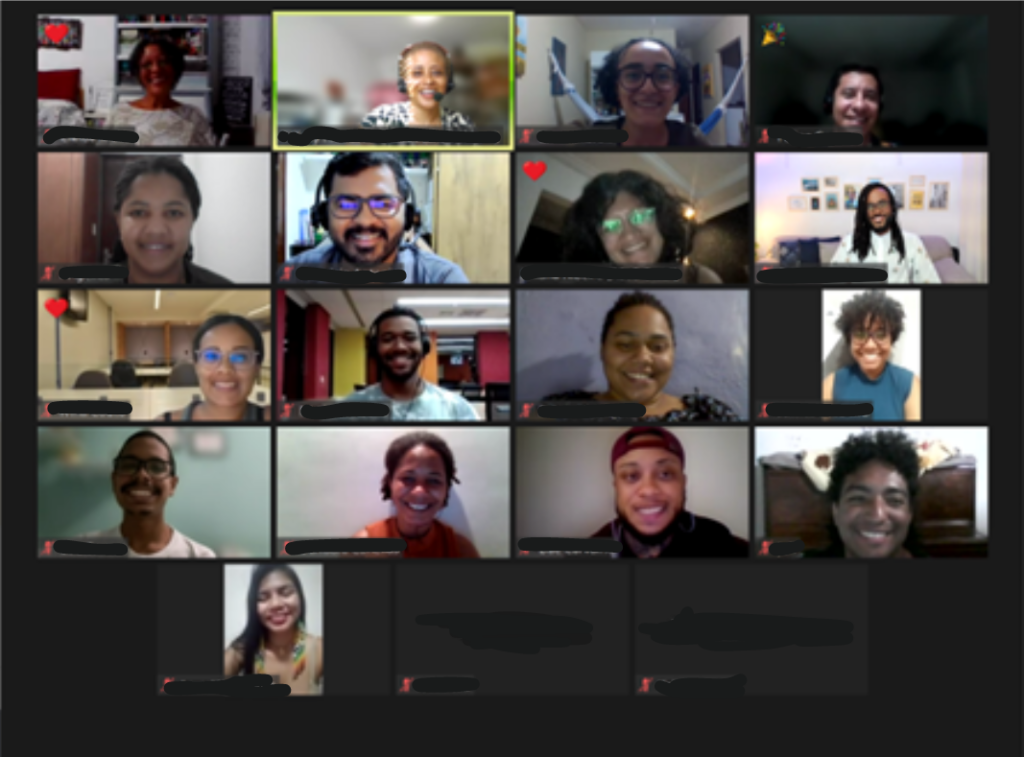
Probasco-Francis’s creative and empathetic approach was appreciated not only by the workshop participants but by Brazil’s Regional English Language Officer, Maria Snarski: “Tiffany was a stellar match for the project and I felt she went above and beyond in what she provided for the participants, giving them superb opportunities to share their experiences with a wider audience.”
And for some, the impact of working with Probasco-Francis extended all the way to the United States. In the summer of 2023, two participants had the opportunity to present at the Reimagining Education Summer Institute at Columbia University. “This was the first time that both of [these students] had presented entirely in English and they were extremely well received,” she shared. She shares this as an example of the continued power this project has had for her and her participants alike. “I have learned that your humanity can be a part of your professional life,” she says. “There is such power in creating space for people to be heard and seen.”
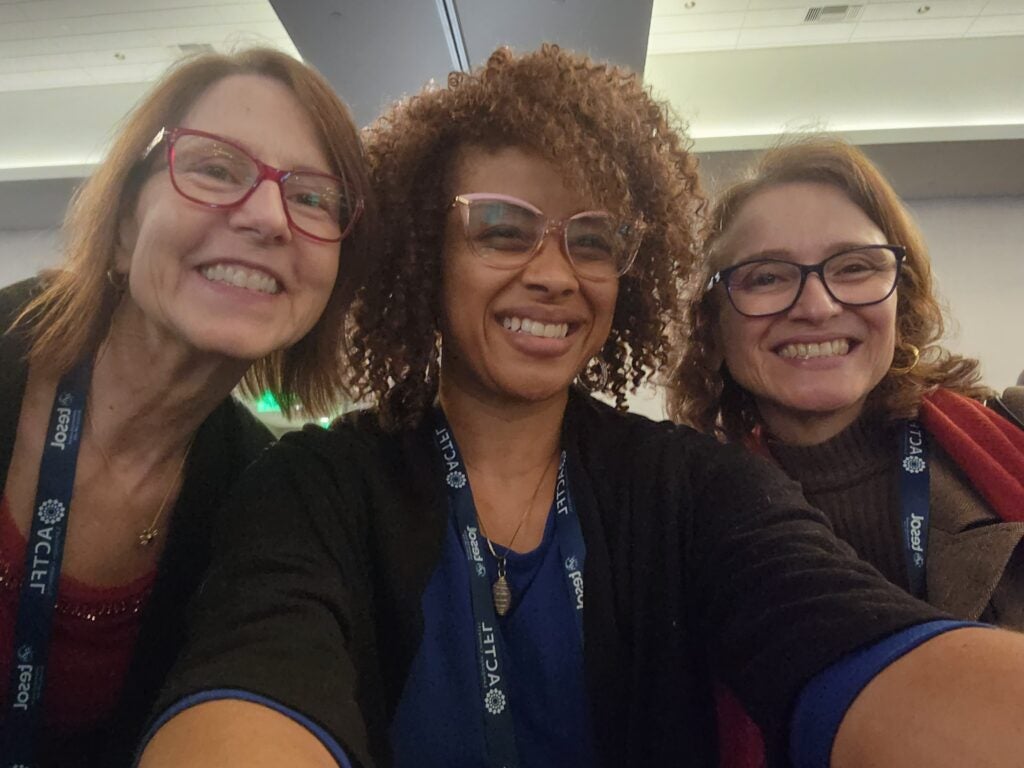
More WOW Moments to Come
Since the end of her project, Probasco-Francis has also been partnering with the new RELO in Brazil, Access E2C, and Mas Unidos on a Portuguese-language course meant to promote the integration of Black, Brown, and Indigenous stories and rights into the Brazilian K-12 curriculum. She is also focused on developing more partnerships between local Brazilian universities and U.S. universities and will be publishing her first chapter in an educational journal at the end of this year. “The wonderful thing about empowerment and transformation is that it is interdependent,” she says. “In many ways, the Specialist Program has opened up my world to engaging in social justice and the rights of Black and Brown people all over the world.”
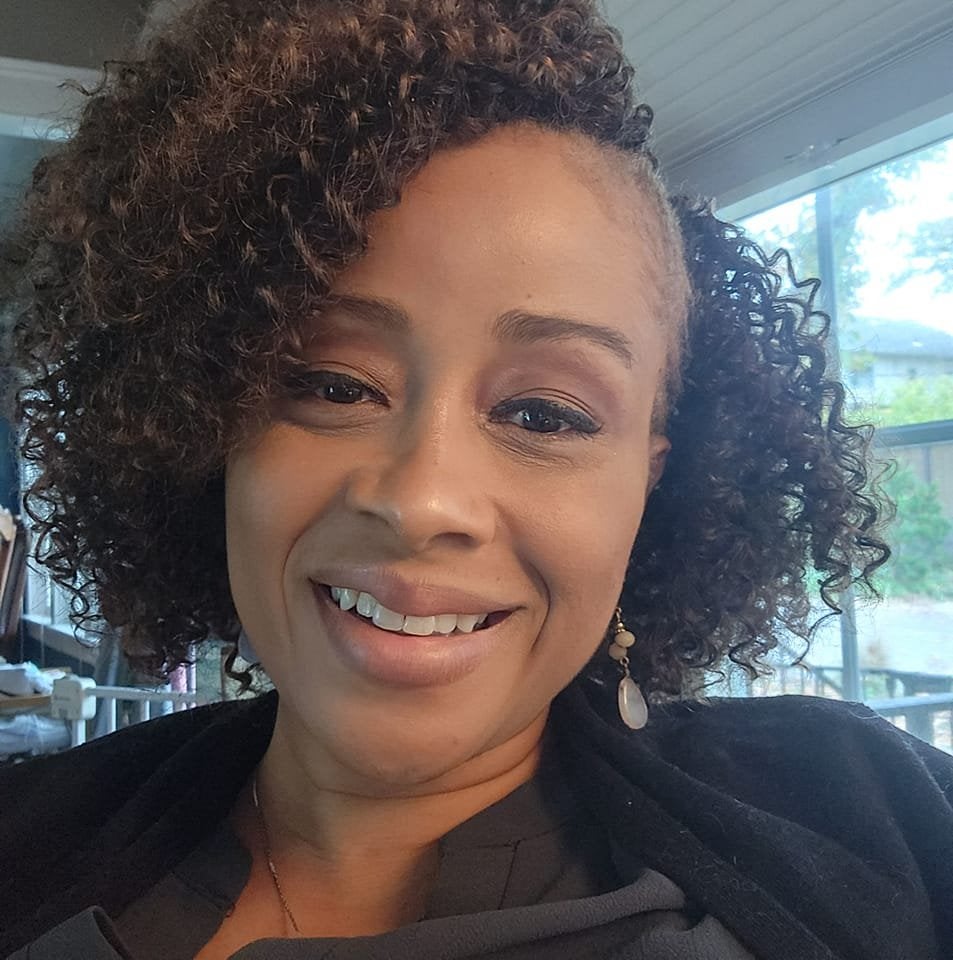
Tiffany Probasco-Francis is an educator with over two decades of experience with specializations in multilingual writing, teacher training, and DEIA. She has taught at colleges and universities in Boston, New York, Delaware, and internationally. She is also a U.S. Department of State English Language Specialist (2022) and holds an MA in TESOL and Applied Linguistics from Columbia University Teachers College. Currently, she is the Training Supervisor at Wilmington Job Corps Center and the Senior Trainer and Hiring Manager for the TEFL Academy, a UK-based online TESOL training program as well as an adult ESOL instructor for the New Castle County Vocational Technical School District. She is passionate about DEIA (Diversity, Equity, Inclusion, and Accessibility) work, specifically for the Black community, and is an advocate for English language services for the Latino immigrant population. She believes that amplifying the voices of marginalized communities is for the betterment of us all. She resides in Wilmington, Delaware, with her husband and two cats, Puss & Boots.
